I've Seen Them Perform, Absolutely Amazing
I've seen them perform, absolutely amazing

More Posts from Stubborn-turtle-blog and Others
23 science facts we didn't know at the start of 2016
1. Gravitational waves are real. More than 100 years after Einstein first predicted them, researchers finally detected the elusive ripples in space time this year. We’ve now seen three gravitational wave events in total.
2. Sloths almost die every time they poop, and it looks agonising.
3. It’s possible to live for more than a year without a heart in your body.
4. It’s also possible to live a normal life without 90 percent of your brain.
5. There are strange, metallic sounds coming from the Mariana trench, the deepest point on Earth’s surface. Scientists currently think the noise is a new kind of baleen whale call.
6. A revolutionary new type of nuclear fusion machine being trialled in Germany really works, and could be the key to clean, unlimited energy.
7. There’s an Earth-like planet just 4.2 light-years away in the Alpha Centauri star system - and scientists are already planning a mission to visit it.
8. Earth has a second mini-moon orbiting it, known as a ‘quasi-satellite’. It’s called 2016 HO3.
9. There might be a ninth planet in our Solar System (no, Pluto doesn’t count).
10. The first written record demonstrating the laws of friction has been hiding inside Leonardo da Vinci’s “irrelevant scribbles” for the past 500 years.
11. Zika virus can be spread sexually, and it really does cause microcephaly in babies.
12. Crows have big ears, and they’re kinda terrifying.
13. The largest known prime number is 274,207,281– 1, which is a ridiculous 22 million digits in length. It’s 5 million digits longer than the second largest prime.
14. The North Pole is slowly moving towards London, due to the planet’s shifting water content.
15. Earth lost enough sea ice this year to cover the entire land mass of India.
16. Artificial intelligence can beat humans at Go.
17. Tardigrades are so indestructible because they have an in-built toolkit to protect their DNA from damage. These tiny creatures can survive being frozen for decades, can bounce back from total desiccation, and can even handle the harsh radiation of space.
18. There are two liquid states of water.
19. Pear-shaped atomic nuclei exist, and they make time travel seem pretty damn impossible.
20. Dinosaurs had glorious tail feathers, and they were floppy.
21. One third of the planet can no longer see the Milky Way from where they live.
22. There’s a giant, 1.5-billion-cubic-metre (54-billion-cubic-foot) field of precious helium gas in Tanzania.
23. The ‘impossible’ EM Drive is the propulsion system that just won’t quit. NASA says it really does seem to produce thrust - but they still have no idea how. We’ll save that mystery for 2017.
I feel like this belongs in a more futuristic animated movie






Bolles + Wilson. Suzuki House. Tokyo. Japan. photos/ drawing: Ryuji Miyamoto/ Bolles + Wilson. - architecture classic
Asteroid Terms: Explained
There are interesting asteroid characters in our solar system, including an asteroid that has its own moon and even one that is shaped like a dog bone! Our OSIRIS-REx mission launches at 7:05 p.m. EDT today and will travel to asteroid Bennu.

Scientists chose Bennu as the target of the OSIRIS-REx mission because of its composition, size and proximity to Earth. Bennu is a rare B-type asteroid (primitive and carbon-rich), which is expected to have organic compounds and water-bearing minerals like clays.
Our OSIRIS-REx mission will travel to Bennu and bring a small sample back to Earth for study.

When talking about asteroids, there are some terms scientists use that might not be in your typical vocabulary…but we’ll help with that!
Here are a few terms you should know:
Orbital Eccentricity: This number describes the shape of an asteroid’s orbit by how elliptical it is. For asteroids in orbit around the sun, eccentricity is a number between 0 and 1, with 0 being a perfectly circular orbit and 0.99 being a highly elliptical orbit.
Inclination: The angle, in degrees, of how tilted an asteroid’s orbit is compared to another plane of reference, usually the plane of the Earth’s orbit around the sun.
Orbital Period: The number of days it takes for an asteroid to revolve once around the sun. For example, the Earth’s orbital period is 365 days.
Perihelion Distance: The distance between an asteroid and the sun when the asteroid is closest to the sun.
Aphelion Distance: The distance between the asteroid and the sun when the asteroid is farthest away from the sun.
Astronomical unit: A distance unit commonly used to describe orbits of objects around the sun. The distance from the Earth to the sun is one astronomical unit, or 1 AU, equivalent to about 93 million miles or 150 million kilometers.
Diameter: A measure of the size of an asteroid. It is the length of a line from a point on the surface, through the center of the asteroid, extending out to the opposite surface. Irregularly shaped asteroids may have different diameters depending on which direction they are measured.
Rotation Period: The time it takes for an asteroid to complete one revolution around its axis of rotation. For example, the rotation period of the Earth is approximately 24 hours, or 1 day.
Spectral Type: The classification of an asteroid, based on a measurement of the light reflected by the asteroid.

Watch live launch coverage of OSIRIS-REx to asteroid Bennu starting at 5:30 p.m, on NASA TV: http://www.nasa.gov/nasatv
Make sure to follow us on Tumblr for your regular dose of space: http://nasa.tumblr.com

Lovelace’s friend Charles Babbage designed a concept for a machine he called the “Analytical Engine” – essentially a mechanical computer that would have relied on punch cards to run programs. He recruited Lovelace to translate some notes from one of his lectures, but while Lovelace was translating she added to the notes herself.
The notes grew to three times their original length, as Lovelace described what many call the first computer program. Because of funding issues, the machine was not built during her and Babbage’s lifetimes.
But Lovelace’s published article on the Analytical Engine later became a source of inspiration for Alan Turing’s work to build the first modern computers in the 1940s.
Women are sometimes considered outsiders in the science and technology fields, but Lovelace and many of the female computer programmers who followed her are proof that this paucity is a function of society, not capability. We forget or never learn about the female “computers” who programmed early mechanical machines in World War II, or that the women’s magazine Cosmopolitan once ran articles suggesting that women were perfectly suited for programming.
If the lack of acknowledgement of women’s contributions to science, technology, engineering, and mathematics (STEM) fields grinds your gears, then Ada Lovelace should be one of the first names you go to right that wrong.
Further reading:
Wikipedia profile
10 Things You May Not Know About Ada Lovelace
What if there were more women in tech?
Why we ALL need to celebrate Ada Lovelace Day


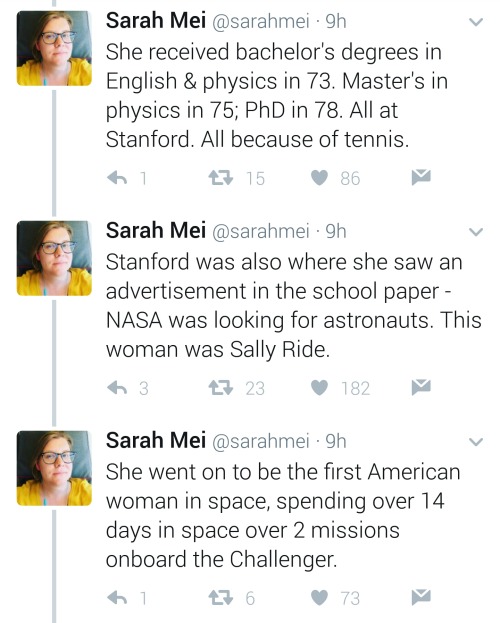

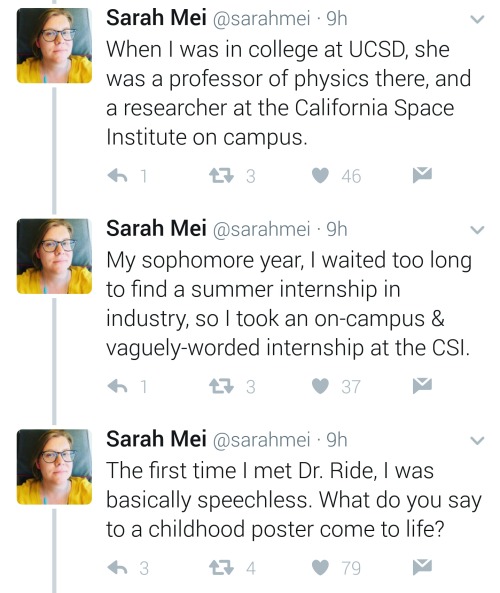
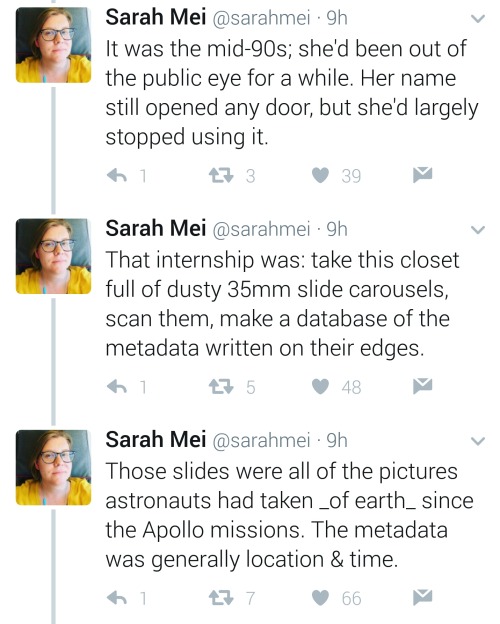
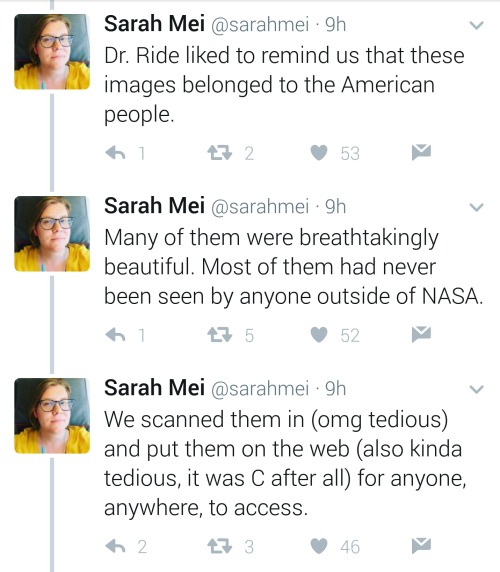
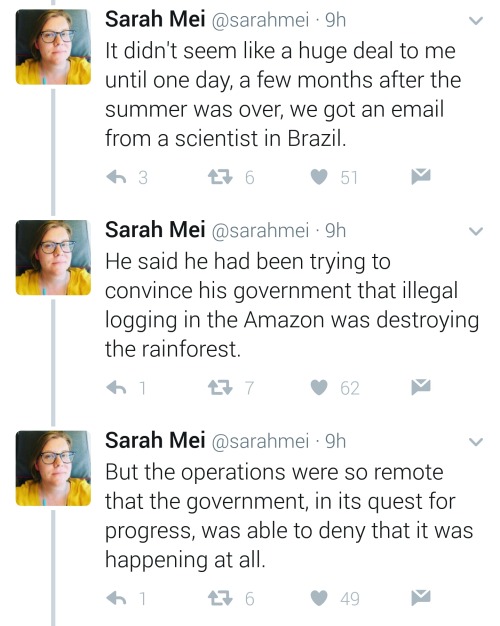
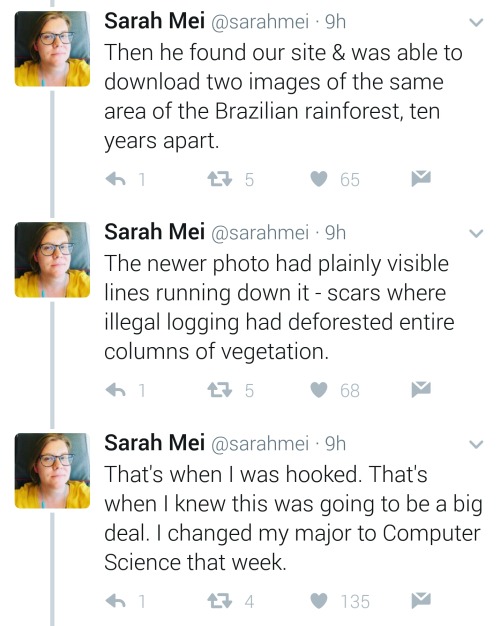
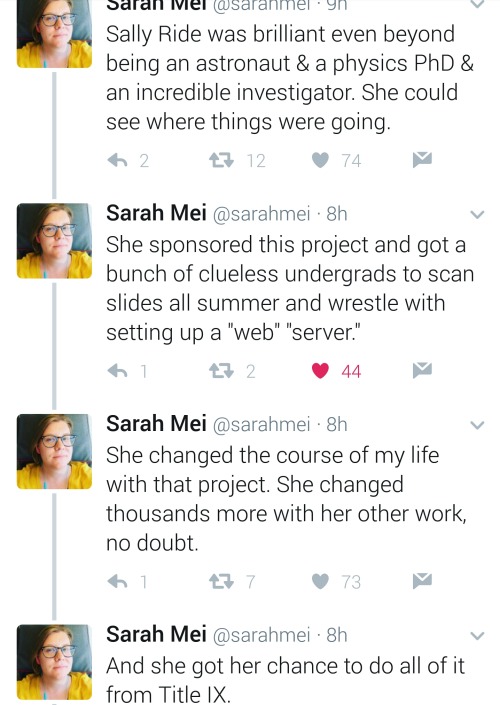
Equal opportunity benefits can be far-reaching
https://twitter.com/sarahmei/status/818682610712866817
Oops
When humans “domesticated” fire 400,000 years ago they made the right combination of conditions – longer periods with close human contact, plus smoke-damaged lungs – for tuberculosis to mutate from a harmless soil bacterium into our number one bacterial killer, according to new research.
Performed by: Morgan Day and Emily Wigger
Number: “Super Mario Bros”
Style: Lindy Hop
From: National Jitterbug Championships 2011









Don’t try this at home!
I talked about the interesting structure of graphite (aka pencil lead) in our latest video:
But I didn’t have time to touch on one of the fascinating side effects of this structure - graphite’s conductivity. A single, two-dimensional sheet of graphite (known as graphene) is the most conductive material we know about. Diamond is among the least conductive materials we know about.
Impure graphite - like the stuff we find in pencils - is somewhere in between. It’s more conductive than sea water and less conductive than steel. As free electrons flow through it, it lights up like a filament and puts out a lot of heat.
Some risk-taking YouTubers (MausolfB Education and ElectroBoom) demonstrated this property so you don’t have to.
Diamond photo credit: Macroscopic Solutions, Graphite photo credit: DerHexer
audience member: what do you respect about each other
clinton: i respect that trump's children haven't stabbed him yet. i'm consistently shocked and amazed by it
-
 thatkindofhumanwreckage reblogged this · 7 years ago
thatkindofhumanwreckage reblogged this · 7 years ago -
 sunriselatindance-blog reblogged this · 8 years ago
sunriselatindance-blog reblogged this · 8 years ago -
 voldemorts-nasal-spray-blog reblogged this · 8 years ago
voldemorts-nasal-spray-blog reblogged this · 8 years ago -
 tripinaction reblogged this · 8 years ago
tripinaction reblogged this · 8 years ago -
 book-dragon-13 liked this · 8 years ago
book-dragon-13 liked this · 8 years ago -
 stubborn-turtle-blog reblogged this · 8 years ago
stubborn-turtle-blog reblogged this · 8 years ago -
 stubborn-turtle-blog liked this · 8 years ago
stubborn-turtle-blog liked this · 8 years ago -
 spacecowboyblevins liked this · 8 years ago
spacecowboyblevins liked this · 8 years ago -
 danceoftheday reblogged this · 8 years ago
danceoftheday reblogged this · 8 years ago -
 gretadanceaddict-blog liked this · 8 years ago
gretadanceaddict-blog liked this · 8 years ago -
 l0rdspoek3s liked this · 8 years ago
l0rdspoek3s liked this · 8 years ago -
 lust-faith-dreams reblogged this · 9 years ago
lust-faith-dreams reblogged this · 9 years ago -
 afinalsme liked this · 9 years ago
afinalsme liked this · 9 years ago -
 cherrycapsicle1934 reblogged this · 9 years ago
cherrycapsicle1934 reblogged this · 9 years ago -
 cherrycapsicle1934 liked this · 9 years ago
cherrycapsicle1934 liked this · 9 years ago -
 blackangelwithwhiteheart-blog liked this · 9 years ago
blackangelwithwhiteheart-blog liked this · 9 years ago -
 motivatedpajawin liked this · 9 years ago
motivatedpajawin liked this · 9 years ago -
 miss-priestly liked this · 9 years ago
miss-priestly liked this · 9 years ago -
 anindieeducation reblogged this · 9 years ago
anindieeducation reblogged this · 9 years ago -
 tulhangosgondolatok reblogged this · 9 years ago
tulhangosgondolatok reblogged this · 9 years ago -
 dance-like-drug-blog reblogged this · 9 years ago
dance-like-drug-blog reblogged this · 9 years ago -
 telestic reblogged this · 9 years ago
telestic reblogged this · 9 years ago -
 idiotseverywhere-blog1 liked this · 9 years ago
idiotseverywhere-blog1 liked this · 9 years ago -
 ballroomdancing reblogged this · 9 years ago
ballroomdancing reblogged this · 9 years ago -
 itsballroomonly-blog liked this · 9 years ago
itsballroomonly-blog liked this · 9 years ago -
 just-th4t-guy reblogged this · 9 years ago
just-th4t-guy reblogged this · 9 years ago -
 petitpeggysao liked this · 9 years ago
petitpeggysao liked this · 9 years ago -
 estadiva liked this · 9 years ago
estadiva liked this · 9 years ago -
 ohmymindpalace liked this · 9 years ago
ohmymindpalace liked this · 9 years ago -
 unaragazzadistrada liked this · 9 years ago
unaragazzadistrada liked this · 9 years ago -
 dancer-suicidal-blog liked this · 9 years ago
dancer-suicidal-blog liked this · 9 years ago -
 mndm009-blog liked this · 9 years ago
mndm009-blog liked this · 9 years ago -
 xhfjdsjdkdmfkfmdjdmd liked this · 9 years ago
xhfjdsjdkdmfkfmdjdmd liked this · 9 years ago -
 distance-matters liked this · 9 years ago
distance-matters liked this · 9 years ago -
 yolofann liked this · 10 years ago
yolofann liked this · 10 years ago -
 nestorgx470 liked this · 10 years ago
nestorgx470 liked this · 10 years ago -
 fadasou98-blog-blog liked this · 10 years ago
fadasou98-blog-blog liked this · 10 years ago -
 gabyyyyyiv liked this · 10 years ago
gabyyyyyiv liked this · 10 years ago -
 eliowl liked this · 10 years ago
eliowl liked this · 10 years ago -
 gabriasiula-blog reblogged this · 10 years ago
gabriasiula-blog reblogged this · 10 years ago
Gaming, Science, History, Feminism, and all other manners of geekery. Also a lot of dance
243 posts
